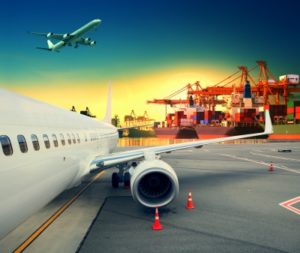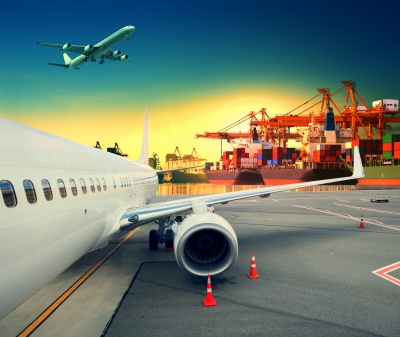 Regional senior transport officials recently agreed to adopt during their 41st meeting in the Philippines the Kuala Lumpur Transport Strategic Plan (KLTSP) 2016-2025 outlining the Association of Southeast Asian Nations’ (ASEAN) actions and goals for the next 10 years.
Regional senior transport officials recently agreed to adopt during their 41st meeting in the Philippines the Kuala Lumpur Transport Strategic Plan (KLTSP) 2016-2025 outlining the Association of Southeast Asian Nations’ (ASEAN) actions and goals for the next 10 years.
The KLTSP fleshes out 30 goals, 78 actions, and 221 milestones in five areas of transportation—air, land, maritime, transport facilitation, and sustainable transport—to guide ASEAN economic integration activities from 2016 to 2025.
It succeeds the Brunei Action Plan (BAP), which was adopted in 2010 and specifies 17 goals and 42 actions, with 160 milestones carried out both collectively and individually by ASEAN member states. Milestones achieved under BAP will be carried forward to the KLTSP.
Maritime objectives under the KLTSP include establishing an ASEAN single shipping market (ASSM), promoting maritime safety and security, and building strategic economic corridors within the region.
For the air sector, the ASEAN single aviation market (ASAM) is to be strengthened and made more competitive and resilient, while for the land sector an efficient, safe, and integrated transport network within the region and with neighboring countries to support trade and tourism is eyed.
The plan also seeks to establish an integrated, efficient, and competitive logistics and multimodal transportation system for the seamless movement of passengers and cargoes within and beyond ASEAN.
Additionally, a regional policy framework is planned to support sustainable transportation that includes low carbon modes of transport, energy efficiency, user-friendly transport initiatives, and integration of transport and land use planning.
Expounding on maritime goals, the plan declares that ASEAN member states are committed to maritime connectivity by creating the ASSM, establishing regional maritime transport cooperation, implementing International Maritime Organization conventions including fostering a culture of maritime safety, and developing strategic maritime logistics corridors.
Specifically, the KLTSP is determined to realize the ASSM by implementing agreed strategies and measures; set up the roll-on/roll-off shipping network operation in ASEAN; develop an integrated inland waterway transport network; and enhance navigation system and security measures in line with international standards.
Other pursuits are to formulate policy initiatives and recommendations to link regional maritime logistics with dialogue partners; intensify regional cooperation in transport safety; and bolster maritime search and rescue (SAR) cooperation.
As for air transport, specific targets are a more efficient, competitive air transport market and stronger engagement with dialogue partners; safer skies in ASEAN; enhanced aviation security in line with International Civil Aviation Organization Standards and Recommended Practices; improved air traffic management through a seamless ASEAN sky; and increased aeronautical SAR cooperation.
Land logistics vision
In land transportation, the strategic plan declares that ASEAN member states will continue with land transport infrastructure (road and railway) integration and intermodal interconnectivity initiatives, with principal airport, port, and inland waterway and ferry links.
Concrete steps are to carry out the detailed designs of the Singapore-Kunming Rail Link (SKRL); complete the ASEAN Highway Network (AHN) project; enhance the use of intelligent transport system; and develop an efficient network of ASEAN dry ports according to existing initiatives such as the AHN and SKRL.
Other land transport goals are to reduce regional road fatalities by 50% by 2020 and cut them down further by 2030; develop a database of ASEAN land transport network; and intensify regional cooperation in transport safety.
Transport facilitation
In the area of transport facilitation, the KLTSP states that for the period 2016-2025, ASEAN member states “shall continue to exert their effort to operationalise transport facilitation agreements that directly impact the logistics sector in the future.”
Goals for transport facilitation aspire to carry out the ASEAN Framework Agreement on the Facilitation of Goods in Transit (AFAFGIT) and ASEAN Framework Agreement on the Facilitation of Inter-state Transport (AFAFIST); support the National Transit Transport Coordinating Committee in monitoring the pilot AFAFGIT project; assess the implementation of ASEAN Framework Agreement on Multimodal Transport (AFAMT); and strengthen coordination with sub-regional initiatives in implementing AFAFGIT, AFAFIST, and AFAMT.
Moreover, KLTSP endorses launching the ASEAN Framework Agreement on Facilitation of Cross Border Transport of Passengers by Road Vehicles; as well as enhancing the skills and expertise of transport officials in implementing ASEAN transport facilitation procedures; promoting logistics cooperation within ASEAN and with dialogue partners; and developing the skills and capacity in logistics and supply chain management of logistics service providers.
Sustainable transport system
Finally, on transport sustainability, the plan states: “As the international community is paying increasing attention to the transport sector as one of the crucial components for sustainability of development patterns, ASEAN Member States agreed to actively pursue sustainable transport and include this issue as part of regional transport strategic plan.”
Goals in this area include intensifying regional cooperation in developing sustainable transport-related policies and strategies; identifying and applying key measures on sustainable transport; and enhancing human resource activities and institutions for sustainable transport system.
The ASEAN Senior Transport Officials Meeting (STOM), as the executive body, will supervise, coordinate, and review programs as well as directions set by ASEAN transport ministers. Existing working groups will also be continued as the principal coordinating and implementing arms of the STOM in carrying out the various programs, projects, and activities of the sectoral areas under the KLTSP.
The Philippines is currently the chair of STOM and will chair the ASEAN Air Transport Working Group in 2020. The country is also the head of the ASEAN Maritime Transport Working Group from 2016 to 2017.
Image courtesy of khunaspix at FreeDigitalPhotos.net





